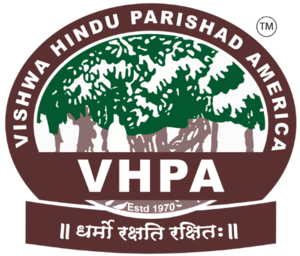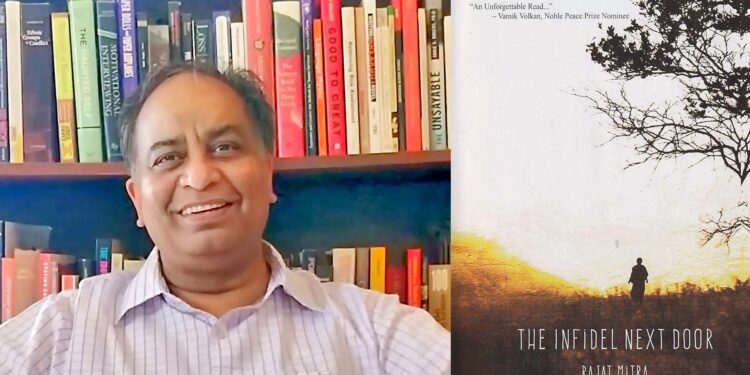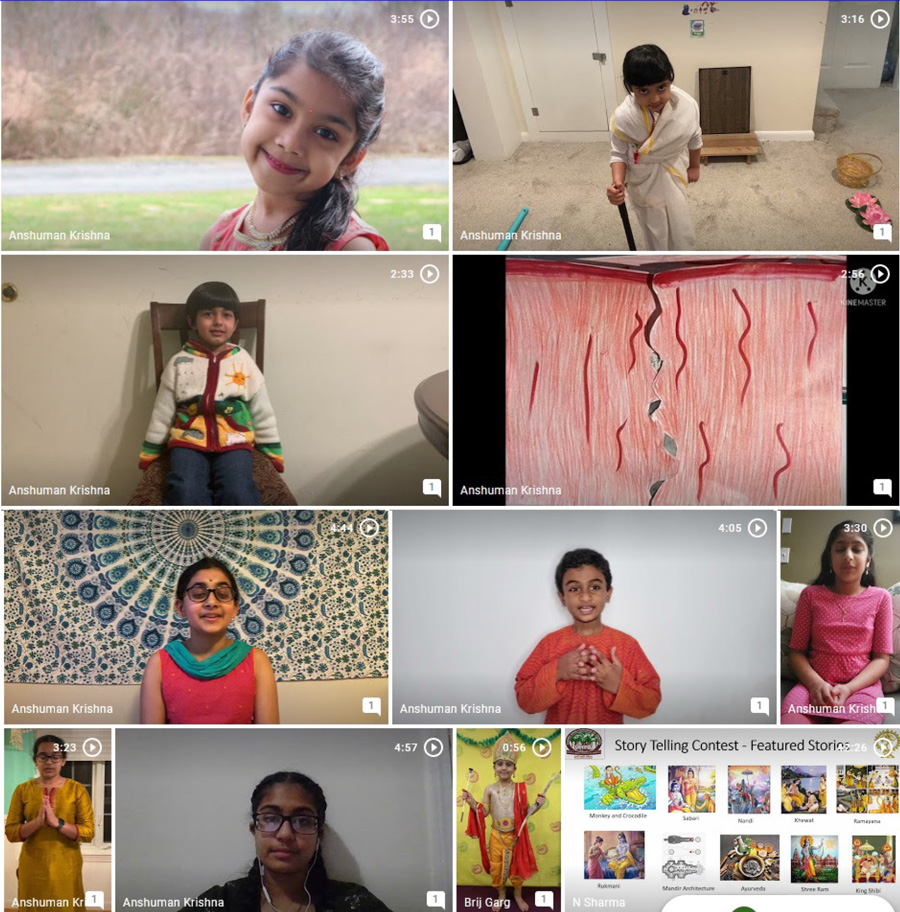“I wanted my child to be born in India,” she said caressing her child.
“How old is she?” I asked, “and when did you come to Bharat?”
“She is only a week old, and we came a month ago.”
“You made this journey full of danger in this condition knowing all that?” one of us asked. “When you are carrying a child, do you know what a risk you took?”
She smiled as if it had no effect on her. “I made this journey for the freedom of my child.”
This was not a response we had expected from her. She is a refugee coming from Pakistan. We talked in a shanty hut made of straws and plastic sheets for protection from the dust flying all around. The hut like structure was in a mountainous terrain where she had come a month ago with her husband.
“We had applied for visa and then after that realized I was pregnant. We also knew it was our only chance to run away from a place where there was no dignity for us,” she said. The baby smiled and slept peacefully as if listening to us. She was oblivious to the dust and the heat. Her bed was made up of a few pieces of handmade ragged clothes. A few older women sat around taking care of them.
“You took a very big risk in coming here in this state. You could have waited, given her birth and then could have brought her here. What was the need to come here in a hurry? Aren’t children born there?” I asked.
The mother had a look in her eyes that said it all. “I am a Bheel, and I pray to Mahadev. I wanted my child to be born in ‘free air’. I could not wait.”
Freedom was one of the topics that I had studied in my course on human rights at Harvard. I had been taught that a primary drive for refugees when they run towards another country is their search for freedom. For this they overcome every challenge and risk their lives. They do so by overcoming every hardship, even death on the journey. But that they do so for their child to be born in freedom, I did not know.
I confess, I had not expected to hear such a statement from a woman who was illiterate, never gone to school or even beyond her village. Freedom is something I had always associated with intellectuals, an abstract concept associated with professors and intellectuals, never with people who lived in poverty, on the edge of the society for whom survival is everything. The woman in front of me changed that.
Had she learnt that term from other refugees, I wondered. Could it be that she was being impulsive who didn’t want to listen to anyone. “What do you understand by freedom?” I asked.
“I told you. I wanted my child to take her first breath in Bharat.” Her voice was calm.
“You could have atleast gone to a hospital over there. Even the closest doctor is so far away from here.”
“There is nothing higher than being born in ‘free air’,” she said it again in her rustic, rural dialect that I strained to follow. “All my life, as a woman I lived in terror of being kidnapped or raped. I didn’t want to have the same future for my child. I told my husband, let us go. He tried to dissuade me saying what is the hurry. Let’s postpone it. Let us have the delivery here. Then we can try again. He and I, we knew both it may not be possible again. Once we don’t go, families don’t get a visa again that easily. If they do, the officials give visa for parents without the child making it sure we would be forced come back.”
“How was your journey?” I asked.
“I spoke to the child in the womb all the way. I told her, I am taking you to freedom. I felt I would lose her at times, but I told her, you have to live. I am taking you away so that you never face what your mother faced.”
“How was it for you to grow up in Pakistan?” I asked.
“A woman has no freedom. She stays indoors all the time. If she ever goes out, she has to accompanied by a male and put a chador all around to cover herself.”
“So, how did you know it will be different in Bharat?”
“I knew it.” It was her simple answer. “Growing up in freedom is the best gift I have given to my child.” Her eyes said it all.
The longing for freedom is universal amongst human beings. In refugees it was the desire to give the child what she had missed which she would not compromise upon.
Seeing my look she said, “We are Bheels. A Bheel child knows about freedom from the moment he takes his first breath. It was we who taught Maharana Pratap about freedom. He played with Bheel children and that is where he understood his fight for freedom.”
Bheels are Hindus who are the largest Tribal group in India. Their name finds mention in Ramayana and Mahabharata.
A memory came to me. Many years ago while attending a workshop in South Africa, a colleague of Nelson Mandela had told the audience that a journalist had once asked Mandela where did he get his relentless struggle for freedom from? He had expected that Mandela would reply that he had got it from reading some book on western philosophy or from a western intellectual. The answer Mandela gave had stunned him. Mandela had replied that he got his idea of freedom from his village elders, from a village philosophy called ‘ubuntu’. It meant that all human beings are equal, and no one is above the other and no one is below either and no one can take it away. The white reporter had felt disappointed that Mandela had got it from a nondescript village elder.
Today, that Bheel woman taught me something similar. She taught me freedom is rooted in the blood and heart of every woman like her who is oppressed and persecuted. That it flows in the veins of mothers, the tribals, the aborigines whom we don’t associate with that. That is how they fought the British and the Mughals. That it is rooted in the soul of Bharat, in her air, in her history, in her myths that around us.
Freedom is not an esoteric concept that we have to learn in schools. In our freedom struggle it didn’t come from any party or was an outside idea but ran in our blood and was rooted in the soil. As long as Bharat exists, this yearning will always come out like it did with the Bheel mother whom we met in the refugee camp.
She also taught me a universal truth that I had always known but never so clearly, that for millions of men, women and children, Bharat is a land that will always be a hope of shelter to the persecuted.
The above narrative comes from a project made possible by Dharmansh Foundation of Jaipur supporting research on the psychological trauma of refugees who come from Pakistan.



![[ Nbc News ] Barbie debuts its first ‘Diwali doll’ ahead of the Hindu festival of lights](https://hinduvishwa.org/wp-content/uploads/2024/10/241003-diwali-barbie-vl-404p-55c7df-75x75.webp)
![[ India Today ] Ohio senator JD Vance thanks wife, a Hindu, for helping him find Christian faith](https://hinduvishwa.org/wp-content/uploads/2024/06/us-senator-jd-vance-reveals-how-his-hindu-wife-usha-helped-him-find-his-christian-faith-image-re-272530504-16x9_0-120x86.webp)










